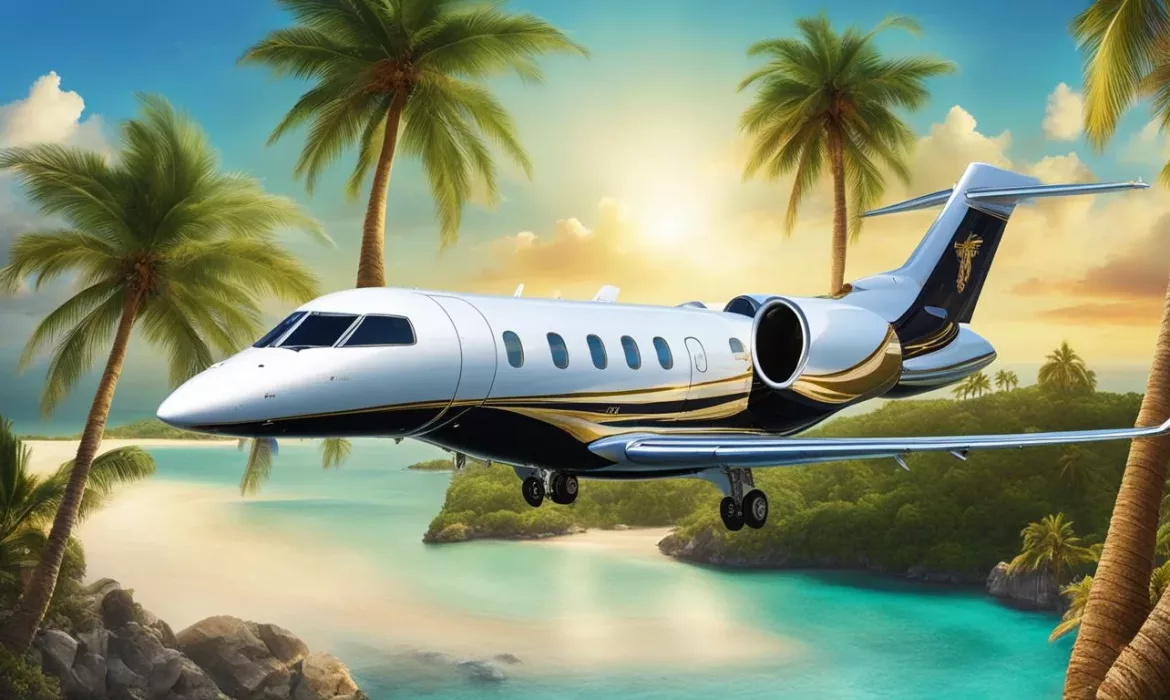In the competitive luxury travel market, VIP travel experience planners know that a strong online presence is essential for attracting high-value guests. To achieve this, search engine optimization (SEO) plays a crucial role. By adopting effective SEO techniques, such as website optimization, keyword research, on-page and off-page optimization, mobile optimization, content marketing, link building, and local SEO, travel planners can boost their visibility and drive relevant traffic to their websites.
Website optimization involves fine-tuning a website’s structure, speed, and user experience to improve its search engine rankings. This includes optimizing page load times, creating relevant meta tags, and ensuring mobile-friendliness. Alongside, comprehensive keyword research allows planners to identify the most valuable search terms used in their niche. By strategically incorporating these keywords into website content, meta descriptions, and headings, travel planners can increase their organic search traffic and attract potential guests.
On-page optimization focuses on optimizing individual web pages to improve their visibility and relevance to search engines. This includes optimizing titles, headings, and images, as well as incorporating relevant keywords naturally within the content. Off-page optimization, on the other hand, involves building high-quality backlinks from reputable websites to boost a website’s authority and trustworthiness in the eyes of search engines.
Mobile optimization is crucial in today’s digital landscape, as an increasing number of travel planners and potential guests use mobile devices to browse and book vacations. By ensuring websites are mobile-friendly, load quickly, and offer a seamless user experience, planners can capture the attention of mobile users and drive more conversions.
Content marketing is another vital pillar of SEO for VIP travel experience planners. By creating valuable and engaging content, such as blog posts, travel guides, and destination reviews, planners can attract visitors, establish themselves as industry experts, and drive organic traffic to their websites. Additionally, content marketing provides opportunities for internal linking, which further enhances a website’s search engine rankings.
Link building involves acquiring high-quality backlinks from authoritative websites in the travel industry. These backlinks not only improve a website’s visibility in search engine results but also contribute to its overall authority and credibility. Lastly, local SEO ensures that travel planners are visible in local search results by optimizing their online presence for location-specific keywords and ensuring consistent NAP (name, address, phone number) information across directories and listings.
Key Takeaways:
- SEO techniques are crucial for VIP travel experience planners to attract high-value guests and improve online visibility.
- Website optimization, keyword research, on-page and off-page optimization, mobile optimization, content marketing, link building, and local SEO are key areas to focus on.
- Optimizing website structure, speed, and user experience enhances search engine rankings.
- Comprehensive keyword research helps identify valuable search terms to incorporate into website content and meta elements.
- On-page optimization involves optimizing individual web pages with relevant keywords and elements.
Importance of Social Media Marketing for Luxury Travel
Social media marketing has become an indispensable tool for luxury travel experience planners in today’s competitive digital landscape. With the power to reach a vast audience of potential guests, social media platforms offer a unique opportunity to showcase offerings, build brand trust, and engage with high-value customers. In this section, we will highlight the importance of social media marketing for luxury travel and explore the strategies that can drive success in this arena.
One of the key elements of successful luxury travel social media marketing is conducting thorough target market analysis. By understanding the preferences, interests, and demographics of the target audience, experience planners can craft compelling content and tailor their messaging accordingly. This in-depth analysis ensures that the content resonates with the desired clientele, ultimately driving engagement and conversion rates.

Another essential aspect of effective social media marketing in the luxury travel sector is the use of rich imagery. Stunning visuals that depict breathtaking destinations, luxurious accommodations, and unique experiences not only capture the attention of potential guests but also evoke desire and aspiration. By showcasing the beauty and exclusivity of their offerings through carefully curated imagery, experience planners can create a strong emotional connection with their target audience, compelling them to take action.
“Social media marketing is a game-changer for luxury travel. The visual nature of these platforms allows us to transport our audience to the extraordinary experiences we offer, creating a desire to be part of it.”
– Emma Thompson, CEO of Luxe Travels
Reviews play a crucial role in influencing the decisions of luxury travelers. Positive reviews on social media platforms not only validate the credibility and quality of an experience planner but also serve as a powerful word-of-mouth recommendation. Additionally, utilizing online travel agencies (OTAs) can enhance the visibility and accessibility of luxury travel offerings. By partnering with reputable OTAs, experience planners can expand their reach and tap into a wider audience of affluent travelers actively seeking luxury experiences.
Advantages of Social Media Marketing for Luxury Travel:
- Direct interaction with potential guests, enabling personalized communication and relationship building.
- Increased brand exposure and awareness among a targeted audience of luxury travelers.
- Opportunity to showcase unique offerings and differentiate from competitors.
- Ability to drive traffic to the website and generate leads for direct bookings.
- Insightful analytics and data for measuring campaign performance and evaluating ROI.
In conclusion, social media marketing is a vital component of a successful luxury travel marketing strategy. By leveraging the power of these platforms, experience planners can elevate their brand, engage with affluent travelers, and ultimately drive bookings. The use of target market analysis, rich imagery, reviews, and OTAs as part of a comprehensive social media marketing plan enables luxury travel experience planners to connect with their audience on a deeper level and position themselves as the go-to choice for unforgettable luxury vacations.
The Role of Search Engine Optimization in Luxury Travel
Search engine optimization (SEO) plays a crucial role in the success of digital marketing strategies for luxury travel. By implementing effective SEO techniques, luxury travel experience planners can enhance their online visibility and attract potential guests. In this section, we will explore the key elements of luxury travel SEO, including location-specific keywords, meta descriptions, and content marketing.
Location-Specific Keywords
One of the essential aspects of luxury travel SEO is the use of location-specific keywords. By incorporating relevant keywords related to the destinations and experiences offered, luxury travel websites can rank higher in search engine results for location-specific queries. This targeted approach helps attract potential guests who are actively searching for luxury travel experiences in specific locations.
Meta Descriptions
Meta descriptions play a crucial role in attracting potential guests to click on your website in search engine results. These concise yet informative snippets provide a brief summary of your page’s content and entice users to click through to your website. By crafting compelling meta descriptions that highlight the unique offerings of your luxury travel experiences, you can increase the click-through rate and drive more qualified traffic to your site.
Content Marketing
Content marketing is an integral part of any successful luxury travel SEO strategy. Creating valuable and engaging content helps build brand authority and attract potential guests. By developing informative blog posts, destination guides, and insider tips, luxury travel experience planners can establish themselves as trusted sources of information and connect with their target audience. Well-optimized content not only improves search engine rankings but also provides value to potential guests throughout their journey.
“Content marketing is not just a buzzword; it is the future of marketing.”
To enhance your luxury travel SEO efforts, ensure that your content is rich in relevant keywords, offers unique insights or perspectives, and utilizes effective storytelling techniques. Additionally, promoting your content through social media channels and influencer collaborations can further amplify your reach and engage with a broader audience.
Implementing a comprehensive SEO strategy tailored to the luxury travel industry is vital for staying ahead in a competitive market. By incorporating location-specific keywords, crafting compelling meta descriptions, and leveraging content marketing, luxury travel experience planners can improve their online visibility and attract high-value guests. The next section will discuss the importance of creating high-quality content for travel SEO, focusing on generating organic traffic and driving lead generation.
Creating High-Quality Content for Travel SEO
In today’s competitive online landscape, creating high-quality content is essential for travel SEO. By producing valuable, engaging, and informative content, luxury travel experience planners can attract organic traffic, generate leads, and increase conversions. To optimize your content for travel SEO, consider the following tips:
1. Understand Your Target Audience
Before creating any content, it’s crucial to understand your target audience. Conduct thorough research to identify their demographics, interests, and pain points. By knowing your audience, you can tailor your content to address their specific needs and preferences.
2. Conduct Keyword Research
Keyword research is a vital step in optimizing your travel content for search engines. Identify relevant keywords and phrases that your target audience is likely to use when searching for travel-related information. Incorporate these keywords naturally throughout your content to improve your website’s visibility in search engine results.
3. Produce Valuable and Engaging Content
Focus on creating content that provides value to your audience. Offer travel tips, destination guides, insider advice, and unique experiences. By sharing valuable insights, you position yourself as an authority in the luxury travel industry and build trust with your potential guests. Engage your readers with rich visuals, captivating storytelling, and interactive elements to keep them coming back for more.
4. Optimize Your Content for SEO
Make sure your travel content is optimized for on-page SEO factors. This includes writing compelling meta descriptions, using header tags (H1, H2, H3) to structure your content, and incorporating relevant internal and external links. Use descriptive alt text in your images, include relevant keywords in your URLs, and ensure your website is mobile-friendly for improved user experience.
5. Leverage the Power of Social Media
Social media platforms are powerful tools for promoting your travel content and driving organic traffic. Share your articles, videos, and images on platforms like Instagram, Facebook, Twitter, and Pinterest. Encourage your audience to engage with your content, share it with their networks, and leave comments. These social signals not only increase your content’s visibility but also contribute to your website’s overall SEO performance.
“By creating valuable content that resonates with your target audience, you can establish your travel brand’s authority and attract high-quality organic traffic.”
By incorporating these tips into your content creation strategy, you can enhance your travel SEO efforts and drive valuable organic traffic to your luxury travel website.

Travel Content Optimization Checklist
| Optimization Aspect | Checklist |
|---|---|
| Keyword research | Identify relevant keywords and incorporate them naturally into your content. |
| Content value | Ensure your content provides value and addresses the needs of your target audience. |
| On-page SEO | Optimize meta descriptions, header tags, URLs, internal and external links, and alt text. |
| Social media promotion | Share your content on relevant social media platforms and encourage engagement. |
| Mobile-friendliness | Ensure your website is optimized for mobile devices to provide a seamless user experience. |
Conclusion
Establishing a strong digital presence is crucial for travel agencies looking to attract more potential customers and increase bookings. Through strategic measures such as website redesign, SEO investment, blogging, social media engagement, and offering online booking and payment options, travel agencies can effectively improve their digital presence and drive growth in their businesses.
A website redesign is a pivotal step towards enhancing a travel agency’s digital presence. By incorporating intuitive user interfaces, responsive design, and visually appealing layouts, agencies can create a seamless online experience for their customers. This, in turn, boosts credibility and encourages visitors to explore and book their dream vacations.
Investing in SEO is another key aspect of building a strong digital presence. By conducting thorough keyword research and optimizing website content, travel agencies can improve their search engine rankings and attract organic traffic. This, combined with effective blogging strategies that offer valuable travel insights and tips, positions agencies as trusted industry authorities, fostering loyalty and engagement among potential customers.
Engaging with customers through social media platforms is equally important. By sharing enticing travel stories, rich imagery, and personalized experiences, travel agencies can captivate audiences and build brand awareness. Additionally, offering online booking and payment options streamlines the booking process, providing convenience and ease of use for customers looking to secure their travel plans.
FAQ
What are some SEO techniques for VIP travel experience planners?
VIP travel experience planners can utilize a variety of SEO techniques, including website optimization, keyword research, on-page and off-page optimization, mobile optimization, content marketing, link building, and local SEO.
Why is social media marketing important for luxury travel?
Social media marketing plays a significant role in the vacation planning process for luxury travelers. It allows luxury travel experience planners to showcase their offerings, engage with potential guests, and build brand trust. Strategies such as target market analysis, the use of rich imagery, and the significance of reviews and online travel agencies (OTAs) are crucial in social media marketing for luxury travel.
What is the role of search engine optimization (SEO) in the luxury travel industry?
SEO is fundamental for luxury travel experience planners to increase their visibility in search engine results and attract potential guests. Location-specific keywords, meta descriptions, and content marketing are important aspects of luxury travel SEO.
How does content marketing contribute to travel SEO?
Content marketing is essential in driving organic traffic to travel websites. By creating high-quality and valuable content, luxury travel experience planners can engage potential guests and guide them through the vacation planning process, contributing to lead generation and increased conversions.
How can travel agencies establish a strong digital presence?
Travel agencies can improve their digital presence by investing in website redesign, SEO, blogging, social media engagement, and offering online booking and payment options, which can attract more potential customers and increase bookings.


